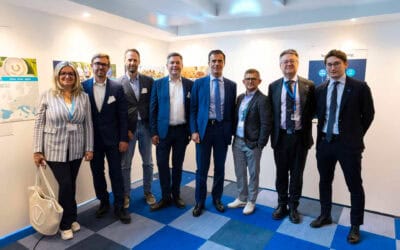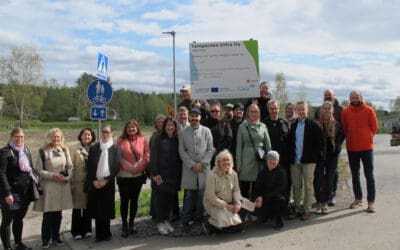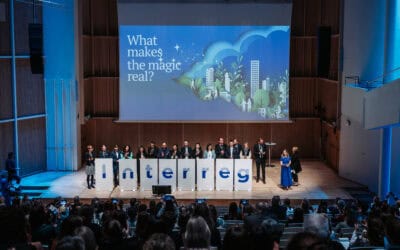How to build innovative, water-smart and climate-neutral societies across the Baltic Sea region? Another meeting of the Joint Programming Committee held on 5-6 May 2021 brought more clarity on what the projects in Interreg Baltic Sea Region 2021-2027 will look like.
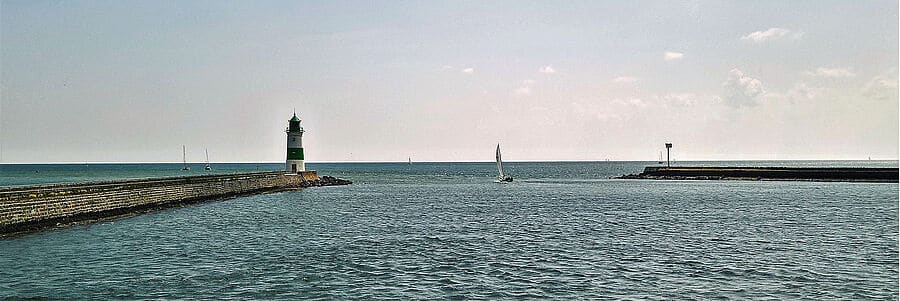
Cooperate to shape a cooperation Programme
The sixth meeting of the Joint Programming Committee (JPC) was held under the chairmanship of Deimante Jankunaite from the Ministry of the Interior of the Republic of Lithuania. As usual, delegations of eleven countries: EU members states and neighbouring partner countries from around the Baltic Sea, representatives of the European Commission and the Managing Authority/Joint Secretariat (MA/JS) attended the meeting. Together, they discussed how transnational cooperation can best put into practice innovative, water-smart and climate-neutral solutions developed in projects for the benefit of citizens in the region.
Core, small and more: it’s all about solutions!
In Interreg Baltic Sea Region 2021-2027, there will be four types of projects to facilitate cooperation in the region: core projects, small projects, platforms and Strategy governance.
Core projects will be the main tool to develop practical and durable solutions to challenges identified in the region. Their work plan will consist of three phases. These projects will first prepare solutions, then pilot and evaluate them, and finally transfer them to the target groups.
Small projects will facilitate an easier access to the Programme thanks to simplified application and implementation processes. This particularly can be attractive to newcomers to the Interreg family. Small projects can also develop practical and durable solutions to challenges in the region, however, their scope will be smaller compared to core projects. Small projects will also be about building trust for further cooperation initiatives, initiating and keeping networks, allowing a swift response to unpredictable and urgent challenges, and, as such, about bringing the Programme closer to the citizens.
Platforms are another funding instrument the Programme will use to create synergies and support cooperation among partners from different programmes in order to facilitate a better uptake of solutions.
Finally, Strategy governance projects will ensure support for the implementation of the Action Plan of the EU Strategy for the Baltic Sea Region.
Easier and better with Interreg Baltic Sea Region 2021-2027
It was already decided at the last meeting that the Programme would ensure reduced administrative burden and faster payments to projects. Now, the JPC members decided to run an application process in a one-step procedure, in combination with individual consultations. Thanks to this, the applicants will receive tailored feedback and will be able to apply – and consequently start their cooperation project – as quickly as possible. The JPC members plan to open the first call for applications for core and small projects still this year, if only the Programme approval processes allow. In addition, in order to help mobilise better partnerships, the Programme will offer the matchmaking support for applicants.
The JPC members also discussed the Programme Manual for Interreg Baltic Sea Region 2021-2027: the main reference document for the applicants and project partners. With an overall aim of simplification, the applicants and project partners will rely on just one Programme Manual document in the future. The Manual will present rules and requirements. Complementary guidance will be offered in other formats, for example in video tutorials.
For applicants, and later project partners, the complete application process and project implementation reporting will be digitalised. The new online monitoring system BAMOS+ will offer a necessary interface for it. The JPC members discussed the new features of the application form as well as the main principles for the assessment criteria of the projects.
Communication in focus
The JPC members also took a closer look at the planned communication and information activities related to the launch of the new Programme. Ensuring sufficient access to information and reliable support for applicants are the key in mobilising relevant partnerships for the new projects to come.
Apart from the official kick-off event of the Programme during the Annual Forum of the EU Strategy for the Baltic Sea Region in September, the applicants will be able to attend several information and tailored events to learn more about new funding opportunities. The events will complement information and guidance available on the website. Communication activities will also cover interlinkages between activities on the Programme and national level in the Member States.
Next steps
The next JPC meeting is planned for mid-June. During that meeting, Programme rules for project will be further discussed.
As the Programme document is currently at the national consultation stage in some of the Member States, the JPC members will finetune the Programme thematic content based on the comments collected in these consultations as well as comments by the European Commission.
Once the processes on the national level are completed and the Programme countries officially approve the Programme document, the Progamme document will be sent to the European Commission for endorsement. This is expected to happen in the beginning of 2022.
Bridging between current and new Programmes
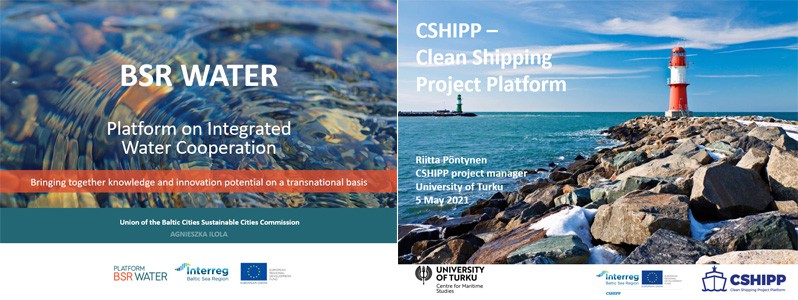
Two Interreg Baltic Sea Region project platforms, BSR Water and CSHIPP, presented their achievements to Members of the Monitoring Committee.
Although the preparations for the new Programme are advancing, the current Interreg Baltic Sea Region 2014-2020 Programme is still at its full swing. Back to back with the JPC meeting, members of the Monitoring Committee (MC) of Interreg Baltic Sea Region 2014-2020 met for the 14th time already.
The MC members reviewed the status of project and Programme implementation, including a current portfolio of projects, monitoring of ongoing projects as well as the status of payments to projects and remaining budget.
The MC members also learned about the achievements of two out of nine project platforms funded by the Programme. As a special instrument to synthesise on solutions developed in several projects from various funding schemes in the region, project platforms proved to exert an impact on policies in the region. Agnieszka Ilowa presented the achievements of the project platform BSR Water on integrated water cooperation, whereas Riitta Pöntynen talked about the project platform CSHIPP, which focuses on reducing environmental footprint of shipping and increasing its competitiveness at the same time.
Project results were also presented in a wider context of the Programme communication. The MC members reviewed the ongoing and planned activities across the Programme communication channels, which contribute to making project achievements better visible.
During this meeting, the MC members also approved funding for the Annual Forum of the EU Strategy for the Baltic Sea Region 2021. It will be the Kaunas City Municipality from Lithuania to organise this year’s Annual Forum. Held in digital format, the Forum will take place from 27 September to 1 October 2021.
As a matter of fact, this was the last decision on new funding made by the MC in the Programme period 2014-2020.



